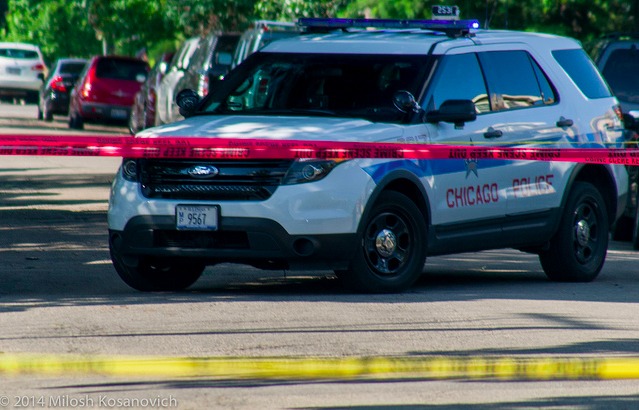City To Pay $3.1 Million Settlement Over Discriminatory Police Hiring Practices
By Mae Rice in News on Feb 9, 2016 6:06PM
Chicago aldermen have approved a $3.1 million settlement to a lawsuit over a Chicago police department hiring rule that, until 2011, illegally discriminated against immigrants—and at least two aldermen weren’t enthused about it, the Sun-Times reported.
Ald. Nick Sposato (38th), a former Chicago firefighter, and Finance Committee Chairman Edward Burke (14th), expressed resistance to the settlement. Sposato also expressed continuing support for the law deemed discriminatory, which required police officers to have lived in the country for at least 10 years before applying.
“I don’t think we did anything wrong. I mean — we’re talking about a police officer. We need a history. We need to know what these people are like,” Sposato said.
In 2011, the hiring rule changed to require only five years of residency from police applicants. The rule was in place, First Assistant Corporation Counsel Jane Elinor Notz told the Sun-Times, to make sure applicants knew enough people in the States for the city to thoroughly background check them—but five years, it turned out, sufficed for that, which meant, Notz told the Sun-Times, “we really had no defense to this lawsuit.”
“[O]ur municipal code prohibits discrimination in the offering of opportunities based upon citizenship,” Notz added.
Now, the city’s settlement will fund hiring and retroactive retirement benefits for 8 immigrant police officers, from a class of 47 immigrant police applicants rejected due to the discriminatory rule. Each member of that 47-person class will also get a payout.
The settlement stems from a lawsuit filed last week by the Department of Justice as part of an ongoing probe into the Chicago Police Department, on behalf of plaintiffs Masood Khan, born in India, and Glenford Flowers, born in Belize. It alleged that both men passed the police entrance exam in 2006, and were turned away because they didn’t meet the residency requirement.
The lawsuit sought back pay, interest on the “amount of lost wages and benefits” and compensatory damages for the “pain, suffering and medical expenses” caused by the city’s discriminatory hiring practice.
